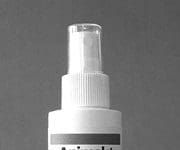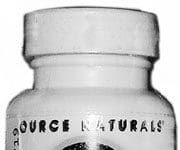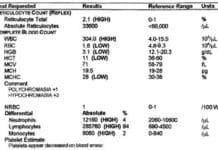Use Corticosteroids On Your Canine With Caution
Corticosteroids are perhaps the most enigmatic of all the drugs in the western medicine man's arsenal. It has been said by many practitioners that they are the most used and most abused of all our medicines. Corticosteroids are a necessary component of a healthy physiology and they can be life saving ... or they can cause multiple adverse side effects that can be devastating to a dog's health and well-being.
Yucca Root for Canine Arthritis Pain
Usually when mass-market, celebrity herbs are born, oceans of research and published introspection soon follows to satisfy the curiosities of the consumer. One of the best examples of this is yucca a succulent, cactus-like member of the lily family that inhabits desert areas and garden landscapes throughout America. Anyone who has studied natural dog and cat food labels, shampoo labels, and ingredient lists for livestock feeds has seen the name of this important plant food and medicine, yet very few of us can cite its intended purpose, much less a broad view of its holistic potential.
Home Remedies For Your Dog’s Skin Inflammation
long soak with a towel infused with an herbal skin rinse.üA juniper decoction is easy to make and very effective for treating a dog whose skin problem is severe
Epileptic Dogs Can Live Normally
Don't despair if your dog has seizures or is diagnosed with epilepsy. Informed care and complementary methods can help these dogs live long, happy lives. Seizures can occur for a variety of reasons across the whole range of ages, and are the most common neurological disorder found in dogs. Making the diagnosis of canine epilepsy is a process of elimination.
Hawthorn Herb Improves Cardiac Function in Dogs
As a traveling, lecturing herbalist, I often hear the question of whether herbs might be helpful in treating old or debilitated dogs with chronic disease. My answer: Yes especially when used to supplement a good, natural diet and to strengthen or tonify" the body's natural healing functions. When used in this capacity
The Dangers of Antibiotic Misuse for Dogs
A holistic veterinarian warns dog owners about casual or sloppy use of synthetic antibiotics, and what the consequences could be for your dog, and even you! Every year we are literally dumping millions of tons of antibiotics into our living environment each ounce of antibiotic with the potential to create yet another antibiotic-resistant strain of bacteria.
Dog Mounting and Dog Dominance Behavior
using a short leash or tether to prevent the dog from greeting the person unless he's politely sitting down."
Canine Urinalysis
Urinalysis is a screening test that may be helpful in diagnosing many diseases, but it is an especially important test to perform whenever any urinary tract disease or abnormality is expected. Abnormal appearing urine (cloudy or red colored), difficulty in urinating, abnormal frequency of urination, or abnormal flow are all indications for ordering a urinalysis.
What’s Your Dog’s Complete Blood Count (CBC) Diagnosis?
as it is expressed here) and hemoglobin (HGB) indicate a mild anemia. Based on this
Safe Canine Weight Loss Tips
Recent studies indicate that up to 40 percent of dogs in the United States may be obese. The risks associated with canine obesity include musculoskeletal disorders such as osteoarthritis, compromised immune function, problems during surgical procedures, delayed wound healing, skin infections, and diabetes.
How to Best Utilize Your Dog’s Next Blood Test
Why a blood test is an integral part of your dog’s requisite annual wellness exam, and how to get the most out of the blood chemistry test results. Most of the dog’s organ systems can be targeted by one chemical analysis or another, and with proper interpretation of one (or a combination of) these analyses, I can, at least in part, assess the dog’s current health/disease status. From this interpretation then, we can often derive a treatment regime, whether it is based on Western or alternative medicines. Isn’t science wonderful?
Dog Cancer Diet
Cancer profoundly alters a dog's metabolism, even before any malignancies are advanced enough to be detected; these changes persist even after remission. Ask any dog owner about his biggest health fears for his pet, and his response is likely to include cancer. It's a leading cause of death in canines and can be indiscriminate, striking young and old dogs alike.
















